The system works against the Grower
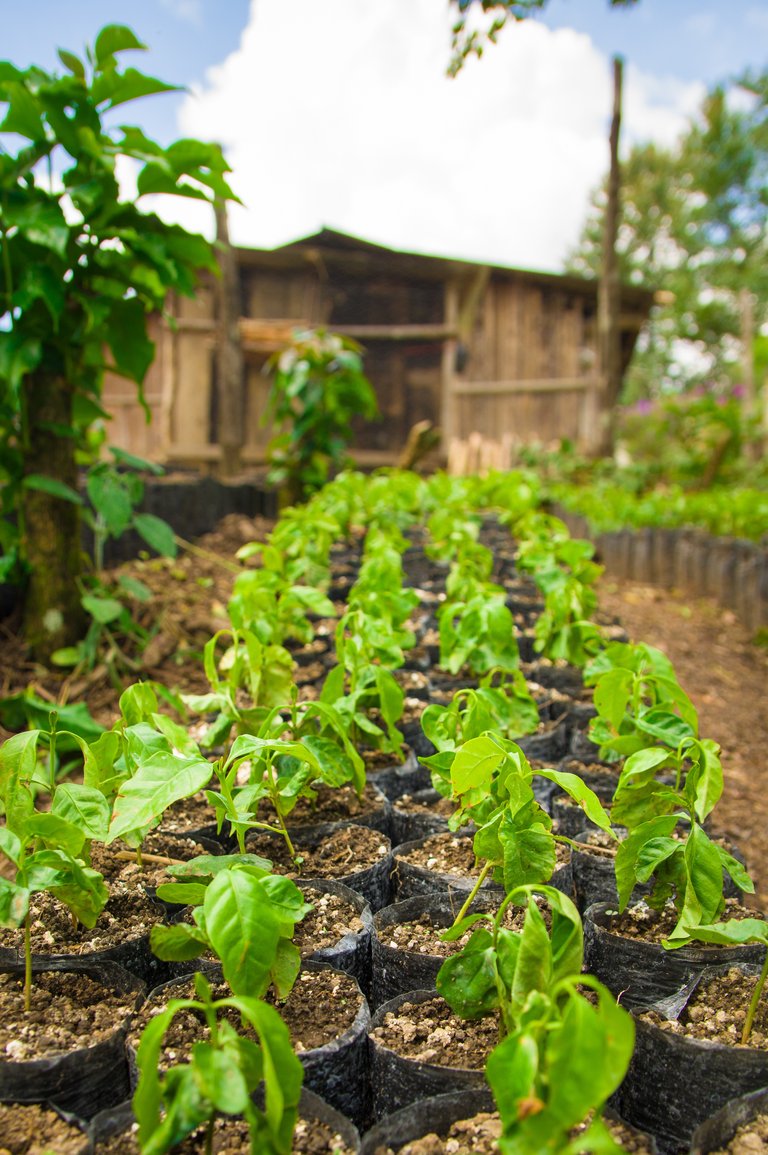
There is a clear difference in the price that a farmer will receive for Organic Specialty Beans as compared to Traditionally farmed beans. An Organic farmer will be associated to trade communities where he will connect directly to international values that pay a premium for organic fair-trade beans. This gives him a remarkable advantage because he can negotiate and reduce intermediaries. This of course comes with a commitment and verification that the beans are in fact organic and that improved conditions meet fair-trade standards.
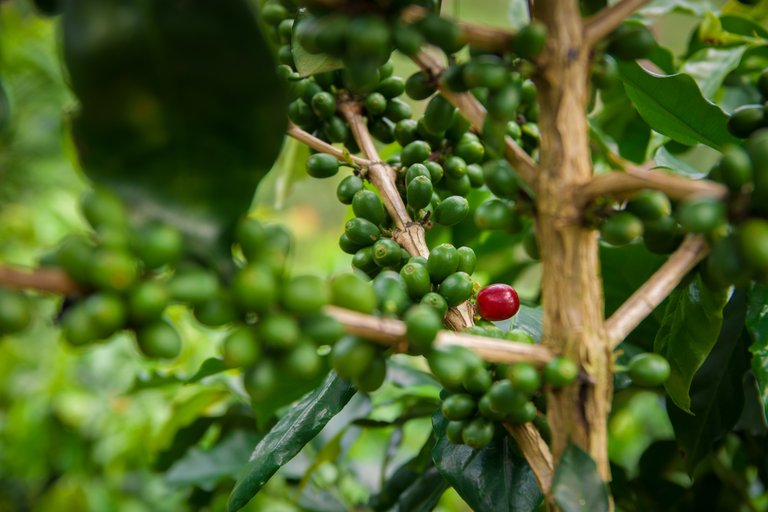
For the traditional farmer, the process of getting his beans to market is not as smooth. Traditional farmers practice methods that involve using pesticides, glyphosate (herbicides), and many times, artificial nutrients. The farmer uses these items in the perception of keeping his costs low and avoiding labor costs. Since these practices are frowned upon by international buyers, this farmer will sell his beans in a local market. To enter this local market, he must transport his beans to the cooperative that purchases beans. This is how one farmer described the process to me, and it clearly shows how traditional farmers are hosed down along the process.
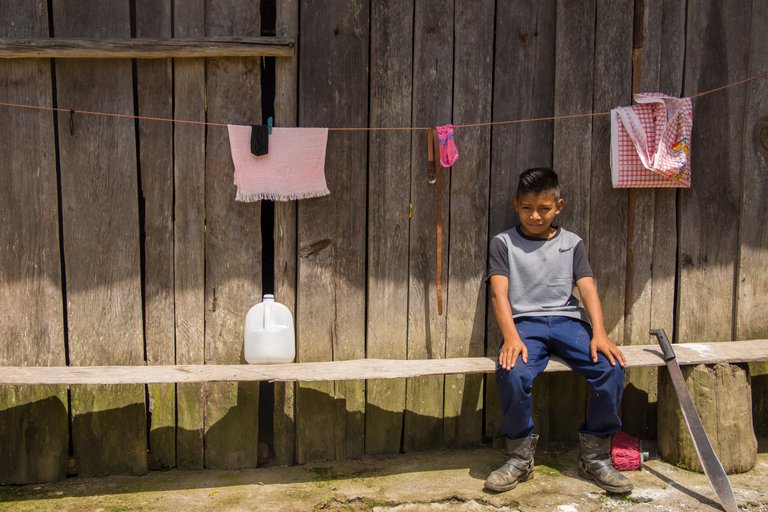
At harvest time, an intermediary with trucks will come to the nearest vicinity to purchase dried or “wet” beans. If the beans are wet (uncured), he must provide 2 pounds for the price of one. This is scam since water is not 50% of the weight in an undried bean. This same intermediary will hold 9 % (reserve) and 40 % (for development). The reserve (9%) is returned to the farmer next year to replant and the farmer the coming year. The development (40%) withheld amount is NEVER returned to the farmer. The intermediaries claim that those funds are used to develop roads and infrastructure to access the farms. This is a total scam. City Halls from neighboring towns and the Federal (Central) government build all roads in this country. Co-ops and intermediaries DO NOT build the infrastructure that was clearly not present. This 40% is most likely a profit margin for the intermediary. On top of this, the farmer declared that all these prices are negotiated in a US Dollar amount. When it comes time to pay, the intermediares will not pay the exchange rate. In this case, the farmer received 20 HNL / 1 USD. When the daily bank exchange rate was 24 HNL / 1 USD. That is a 16 % reduction just there.
The purpose of all these numbers is to illustrate that a traditional coffee farmer is hosed down by intermediaries and the market process in various ways. At the end, they are paid a price that is very distant to the prices on published international markets. Without access to information and new markets, these farmers lack the capital to invest in trucks and further developing their farms. This recount is of the traditional farm is from the perspective of the farm owner. The seasonal worker that works for the farm owner, in turn receives much of the disadvantages of this trade.
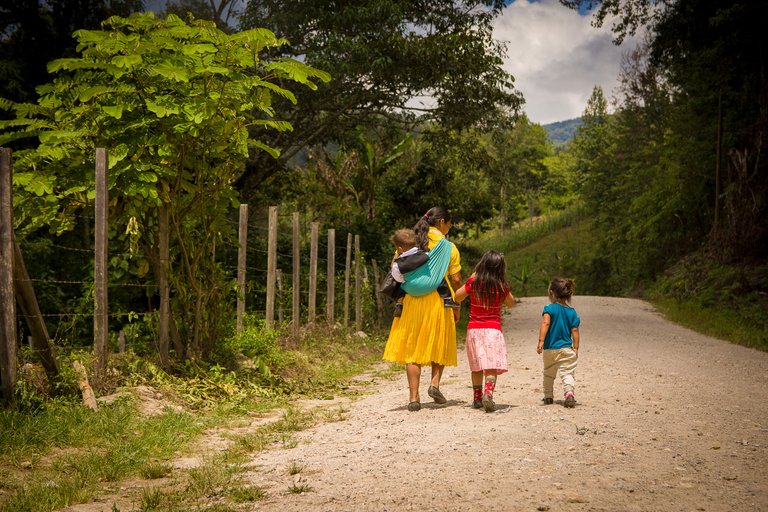
The lady in yellow from the previous post.
The reason I publish about coffee is that I work for an organization named DwellingsAG. More information at DWELLINGSNOW.COM
At Dwellings, we provide free homes to some of the poorest individuals around the world.
Where does Housing fit into all of this:
The donation of a house to the workers that have been described brings meaningful and life-changing benefits. First of all, and most fundamentally, a home gives an entire family an elevated sense of dignity and self-respect. The parents have an item of pride in providing their children a safe, warm, and sheltering place to grow up. This elevated sense in self-respect, in turn, leads to individuals aspiring for better education and general wellbeing in their lives. Another word for this fulfillment these families receive is Hope. They are hopeful for a better future because they have the standard of a dignifying home. Financially, a home is a huge assistance to the micro economy of individual families. Like in many places, a family that rents or leases a place pays a significant portion of their income into keeping or building a home. When a home is gifted, the recipient family can now use those same funds for education, medical expenses, and other sometimes neglected needs.
In other words, this gift provides a baseline from which a family can grow economically.
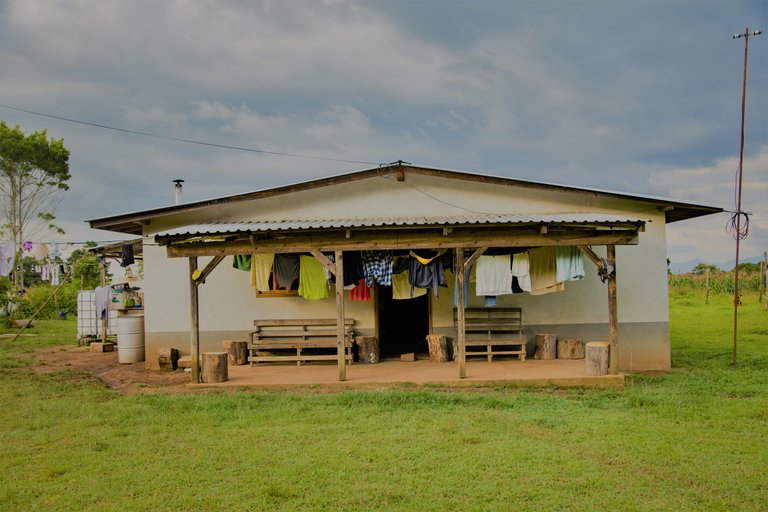
The purpose of this post is to bring light living conditions of agricultural workers around the world. Some of the basic products that we consume every day are produced by some of the poorest people around the world. We can do better than that. Acknowledgment is the first step to improvement.
Link to the previous Coffee Series Posts
https://steemit.com/life/@deepwaters/coffee-worker-series-part-3-photo-series-eng-esp
https://steemit.com/life/@deepwaters/coffee-worker-series-part-2-photo-series
https://steemit.com/coffee/@deepwaters/the-life-of-a-coffee-worker-photo-series
ORIGINALLY POSTED BY @DEEPWATERS ON THE STEEM NETWORK.
WOULD YOU CONSIDER UPVOTING AND RESTEEMING THIS POST?
20% OF THE PROFITS OF THIS BLOG WILL BE DONATED TO TURTLE AND OCEAN PROTECTION PROGRAMS IN THE PARADISE ISLAND OF ROATAN, HONDURAS. FOLLOW US FOR MORE EXCLUSIVE CONTENT.
FOR DIRECT CONTACT, YOU MAY USE THE EMAIL:
jay.deepwaters@gmail.com
OR DISCORD
impatientoptim#6729
This is a very good message. I am selling coffee and I am curious to read about growing coffee beans. Thank you!
@olga.maslievich
Its always nice to meet coffee folks. I am involved with a fully organic coffee farm in Marcala, a town in Honduras. We grow the coffee cherries at 1500 ft above sea level in a temperate climate. We never use glyphosate, artificial fertilizers or pesticides 🙏 We cultivate through an Indore compost method and other organic practices.
Certified Organic and FairTrade, ready to export. We sell to a few select cafes in Austria and Germany. I prefer it when we roast to a cinnamon, chocolate color and prepared on a French Press. Every producer is unique, but ours has a deep Cacao, citrus essence.
The farmer I describe on this post is not organic and does not export the way we do. That is why we work on getting housing for the workers. that way, they are enabled to become fair trade and hopefully organic.
visit us at:
https://www.facebook.com/fincasanpablohn/